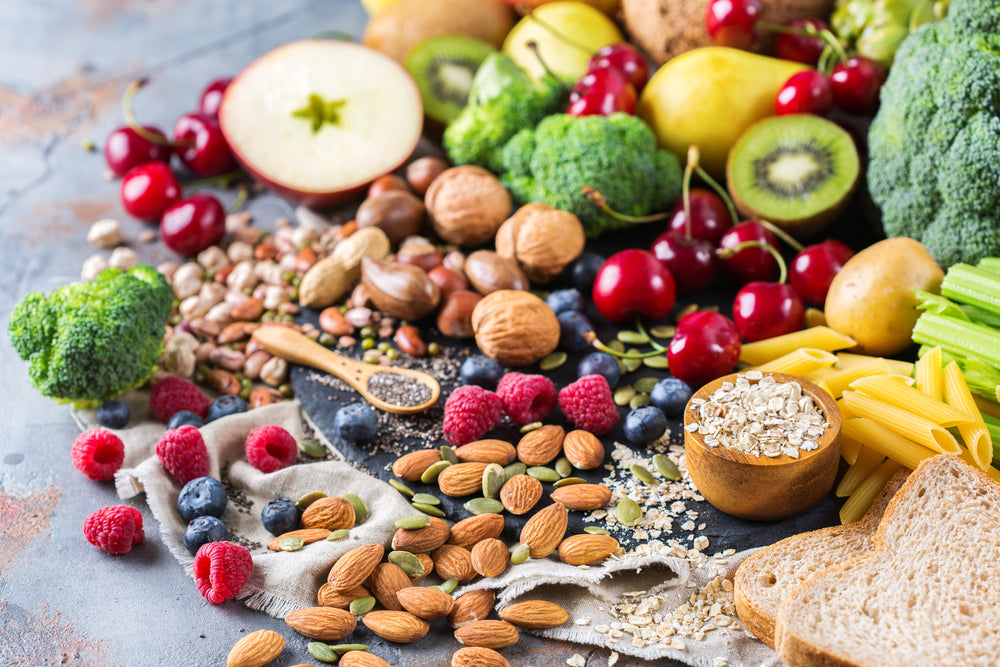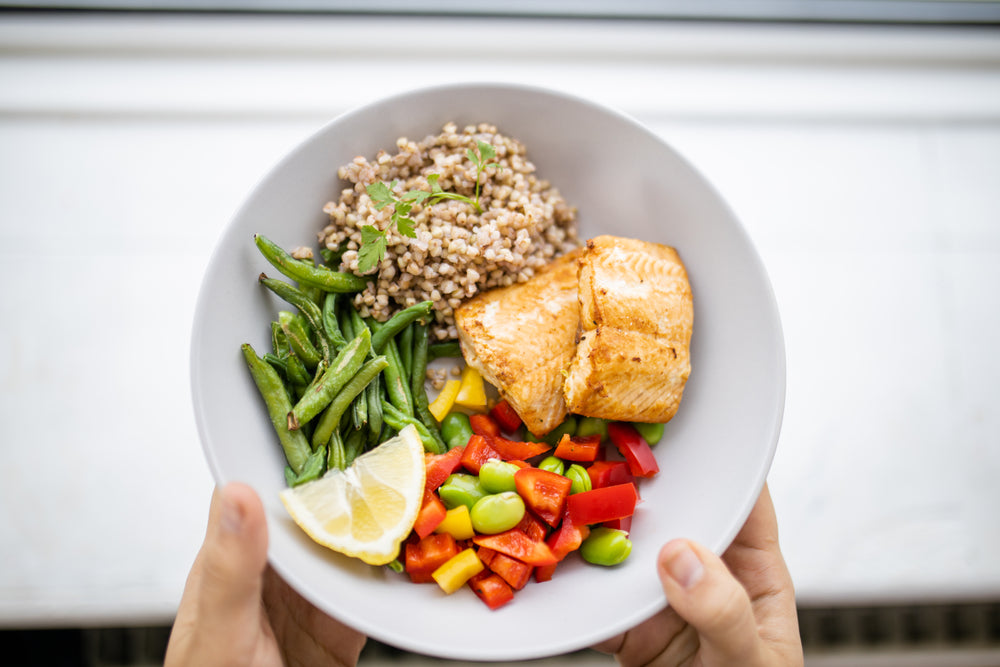How to Make Informed Food Choices

“You don’t have to cook fancy or complicated masterpieces - just good food from fresh ingredients.” — Julia Child
Making informed choices about what we eat is essential for our health and well-being. With an abundance of options available, navigating the aisles of grocery stores and decoding food labels can be overwhelming.
However, armed with knowledge and a few simple strategies, you can empower yourself to make choices that nourish your body and support your well-being.
So let’s explore actionable tips to help you make informed decisions when it comes to food.
Understanding Nutritional Labels

One of the first steps in making informed food choices is understanding nutritional labels. These labels provide crucial information about the contents of the product, including serving size, calories, nutritional value, and macronutrient breakdown.
Paying attention to serving sizes is key to accurately assessing nutritional content, as many packaged foods contain multiple servings per container.
Moreover, look for labels that highlight key nutrients such as fiber, vitamins, and minerals, while minimizing unhealthy additives like trans fats, added sugars, high sodium content, and artificial preservatives.
Familiarize yourself with common terms used on labels, such as “organic,” “non-GMO,” and “grass-fed,” to better understand the quality of foods you’re buying.
Prioritizing Whole Foods

Sadly, nowadays, grocery stores are dominated by processed and convenience foods. Which is why prioritizing whole, minimally processed foods is of prime importance for optimal health.
Whole foods, such as fruits, vegetables, whole grains, legumes, nuts, and seeds, are packed with essential nutrients, fiber, phytonutrients, and phytochemicals that promote overall well-being.
When grocery shopping, focus on filling your cart with a rainbow of fruits and vegetables, opting for seasonal foods and locally sourced produce whenever possible. Choose whole grains like quinoa, brown rice, and oats over refined grains. And don’t forget to incorporate plant-based proteins such as beans, lentils, and tofu into your meals.
By centering your diet around whole foods, you can fuel your body with the nutrients it needs to thrive.
Understand Nutrient Density

Focus on foods that provide the most nutrients per calorie. Nutrient-dense foods, such as leafy greens, berries, nuts, seeds, and lean proteins, offer a wealth of vitamins, minerals, and antioxidants without excessive calories. Mixing these foods into your diet can help optimize your nutrient intake and support overall health.
In addition to boosting your nutrient intake, Liquid chlorophyll supplement offers a concentrated source of nutrients, harnessing the power of plant-based chlorophyll to enhance nutrient density in your diet.
Liquid Chlorophyll provides an abundance of essential vitamins, minerals, and antioxidants in a convenient form. By integrating Liquid Chlorophyll into your daily regimen, you can help boost your absorption of nutrients such as vitamin A, vitamin K, magnesium, and antioxidants to support your overall health and well-being.
Mindful Eating Practices

In addition to choosing nutrient-dense foods, practicing mindful eating can further enhance your relationship with food and promote overall wellness. Mindful eating involves paying attention to hunger and fullness cues, allowing you to luxuriate in each bite, and cultivate a deeper awareness of the eating experience.
Before eating, take a moment to assess your hunger levels and choose foods that will satisfy your body’s needs. Remember to eat slowly, chew each bite thoroughly, and savor the flavors and textures of your food.
Avoid distractions such as screens or multitasking while eating so you can fully focus on the meal. This practice is also showing respect to your food.
Consider Sustainability and Ethical Practices

In making informed food choices, it’s essential to consider not only the impact on our bodies but also on the environment.
Choose foods that are locally produced when possible, reducing the environmental impact associated with transportation and storage. Support farmers and producers who prioritize sustainable farming methods, such as organic or regenerative agriculture, which promote soil health and biodiversity.
Additionally, consider reducing your consumption of animal products, as livestock production is a significant contributor to greenhouse gas emissions and deforestation.
Seek Reliable Sources of Information

Stay informed about nutrition and food-related topics by seeking out reliable sources of information.
Consult registered dietitians, reputable health websites, and evidence-based books and resources. Be aware of news headlines, trend diets, and information spread on social media. Remember that nutrition is a broad topic, and individual needs may vary based on factors such as age, gender, activity level, and health status. That’s why research and knowledge are very important to keep your nutrition on track.
In the journey towards wellness, remember that nourishing your body with wholesome, nutrient-dense foods is the cornerstone of vitality and longevity.
Related Blogs:
- 20 Easy & Fun Ways to Improve Your Nutrition
- Nutrition Time: Why Eating the Rainbow Is Really Good for You
- The Happy Vitamin Guide: Enhancing Your Mood With Nutritional Support
- How to Choose the Right Balanced Plate for Women's Nutrition
- 5 Ways To Start Eating Right And Stay Healthy
LIKED THIS POST? SHARE IT ON SOCIAL!



